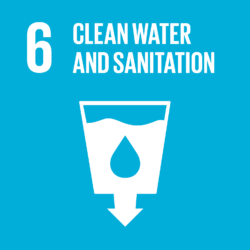
The Thirst for Clean Water Justice

How often do you think about your access to clean water? Do you ever consider what you would do if you turned on your tap and nothing (or something undrinkable) came out?
Whether you realize this or not it is a real danger. We have a limited supply of clean drinking water and already parts of the world are starting to experience shortages.
Here are three things you should know about the coming water crisis.
The first thing to know: The reality is humanity’s access to water is uneven and unfair. Despite its seeming abundance in our daily lives potable water is a sliver (2.5%) of Earth’s water reservoirs and over one billion people (or 1 in 9) lack access to safe drinking water. As the world’s population increases and areas become more modernized our water intake will dramatically increase as will the number of people living in water poverty. By 2025 two-thirds of the world’s population will be water stressed and by 2050 one in five developing countries will experience water shortages.
So if you’re not worried yet because you can still just turn on your tap and get easy access to clean water maybe you should start thinking about the future.
The second thing to know: The effects of water scarcity are pretty dire.
Contaminated water leads to illnesses like cholera, typhoid and diarrheal. None of these are conditions anyone would want to experience and these diseases cause 3.4 million deaths a year.
This dirty water is also a breeding ground for mosquitos and this is increasing the rates of malaria and dengue fever.
Food shortages are another important danger that needs to be remembered. Agriculture uses an enormous amount of water (according to the International Water Management Institute it uses 70%) and water scarcity is already leading to lower crop yields and death of livestock.
There are also economic impacts that come with shrinking and contaminated water reserves, as every sector that depends on clean water (agriculture, fishing, recreation, tourism) will see a negative outcome.
The third thing to know: Although this issue is terrifying and unjust there are steps being taken to mitigate the damage and these steps are being used across the globe.
Take water banking for example. In this case aquifers are used to collect groundwater and store it for later use. This is ideal for any environment that experiences both droughts and rainy seasons. Not a new concept (its roots can be traced back to the ancient Middle East) this system prevents evaporation and allows the water bank to be sourced from many places. It’s also more economically viable and environmentally friendly than dams.
Drip irrigation is another important breakthrough. Understanding the wasteful nature of a sprinkler or spray system this new method places water directly in the root zone of the soil. Both reducing water costs and water evaporation drip irrigation is a method that has a lot of potential when it comes to reducing our agricultural water consumption.
An often quoted line from the Rime of the Ancient Mariner is “Water, water, everywhere, nor any drop to drink.” Generally used to describe our relationship with salt water its underlying meaning and threat is becoming more and more apparent to our everyday world.
This should be the issue that unites us all. Without water we will die. Are you ready to join the fight?


Thanks for sharing your ideas with this blog. Furthermore, a fable regarding the banking companies intentions whenever talking about property foreclosures is that the lender will not have my installments. There is a specific amount of time that the bank will take payments from time to time. If you are also deep inside the hole, they’re going to commonly desire that you pay the particular payment entirely. However, i am not saying that they will not take any sort of repayments at all. In the event you and the traditional bank can manage to work a little something out, the foreclosure course of action may cease. However, when you continue to miss out on payments in the new program, the property foreclosure process can just pick up exactly where it was left off.